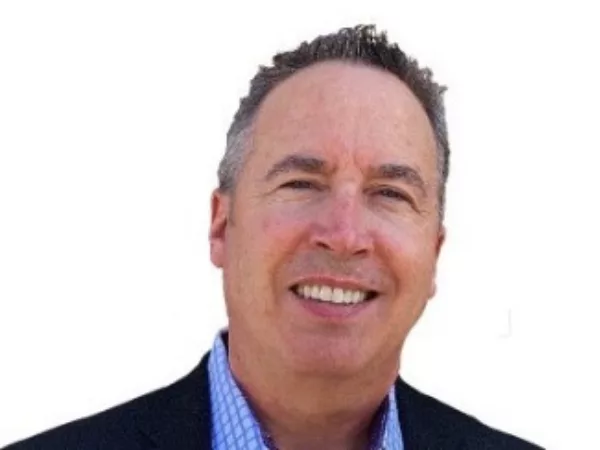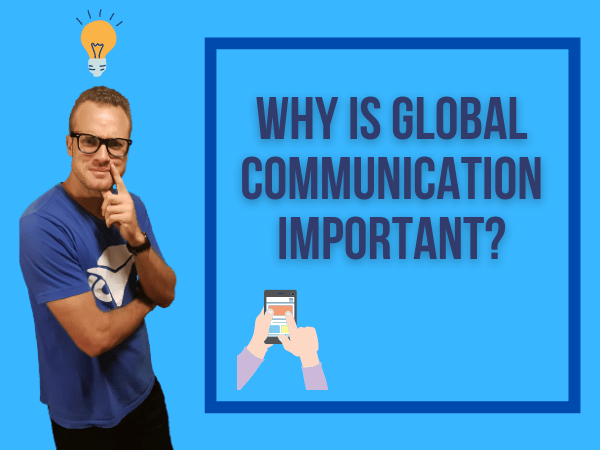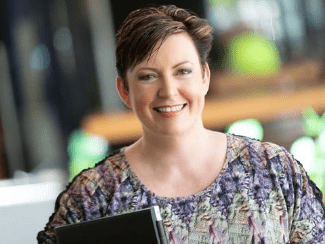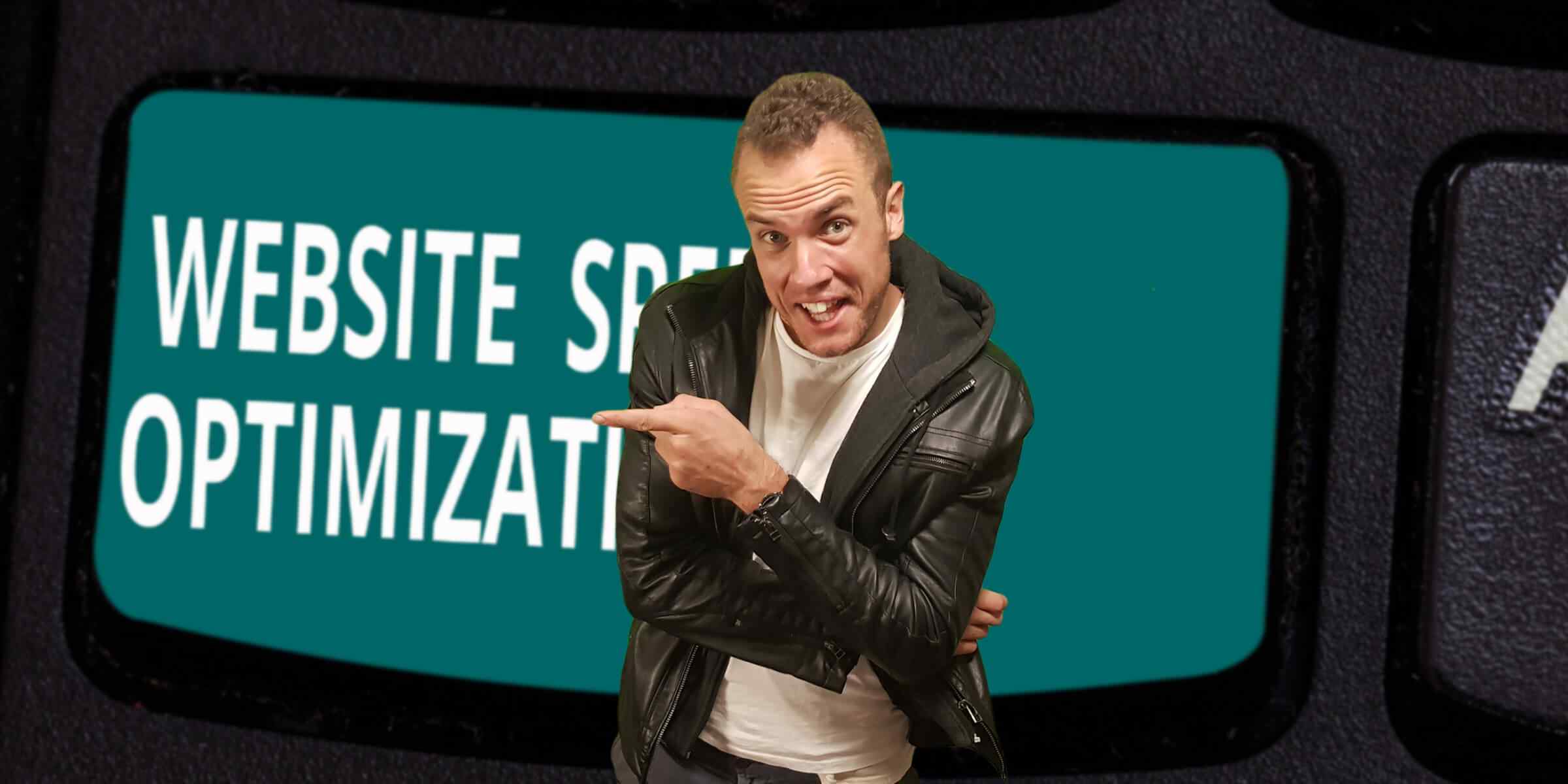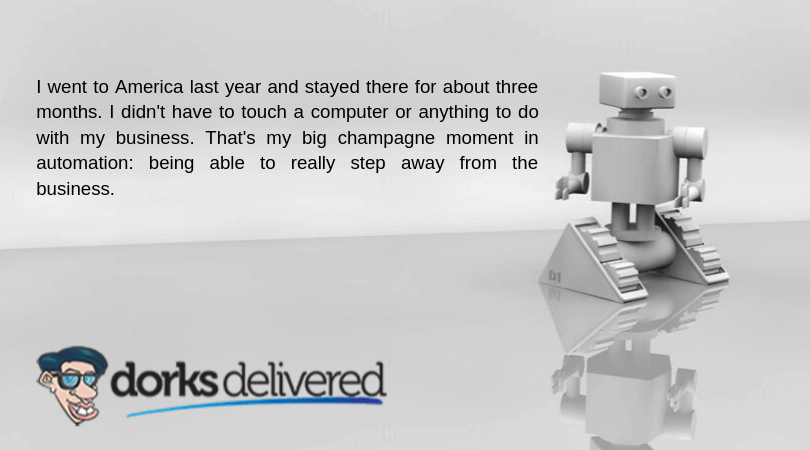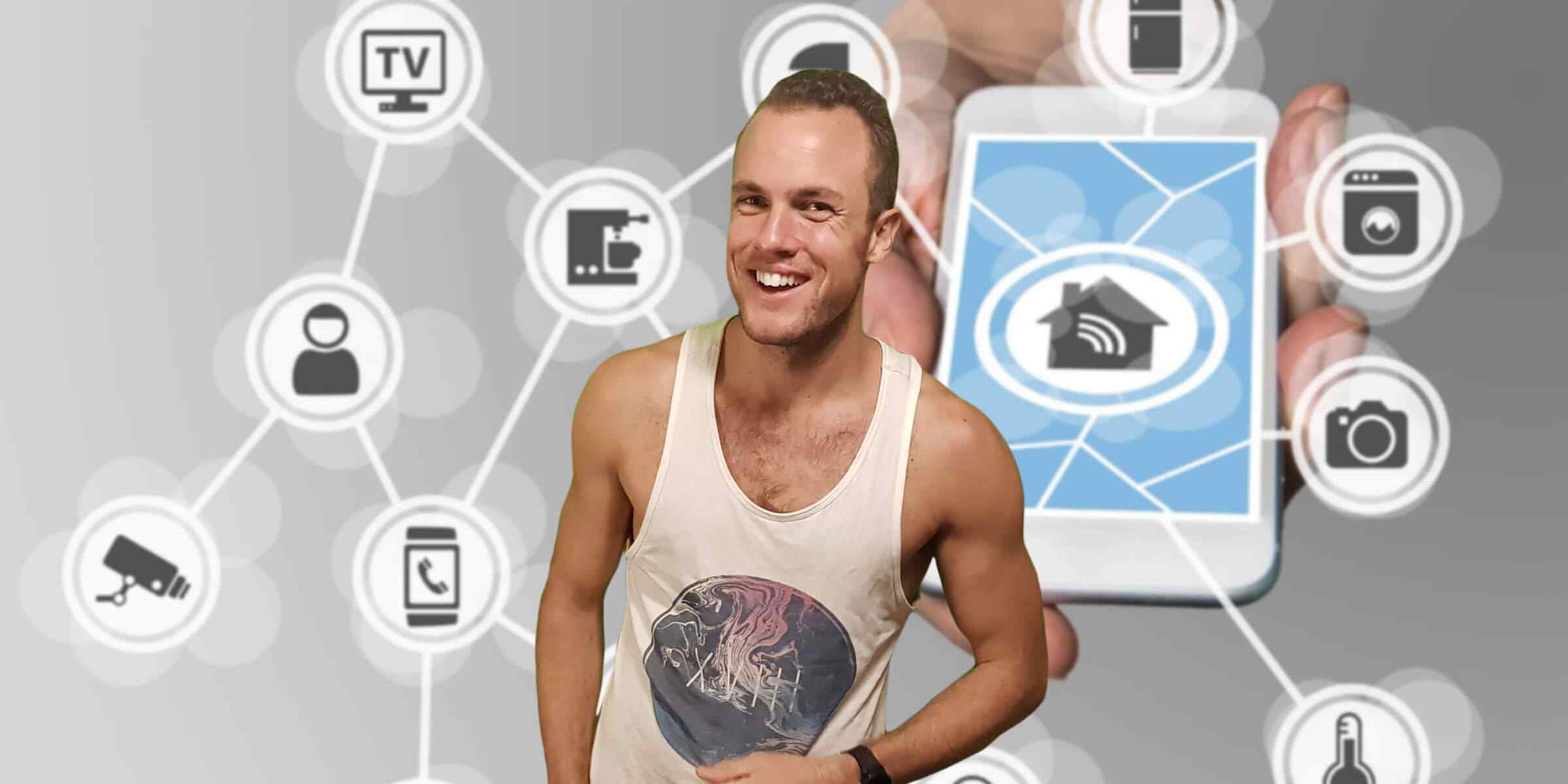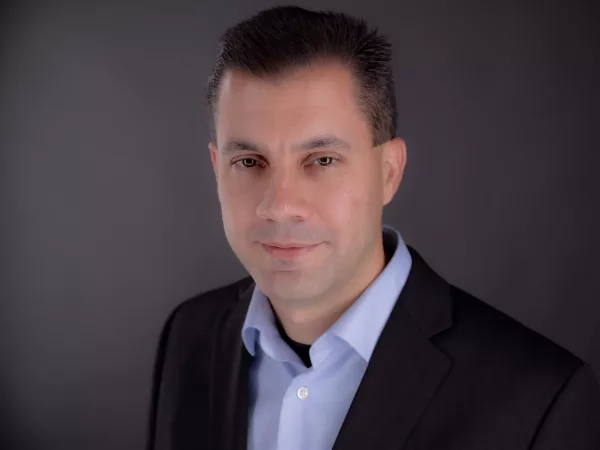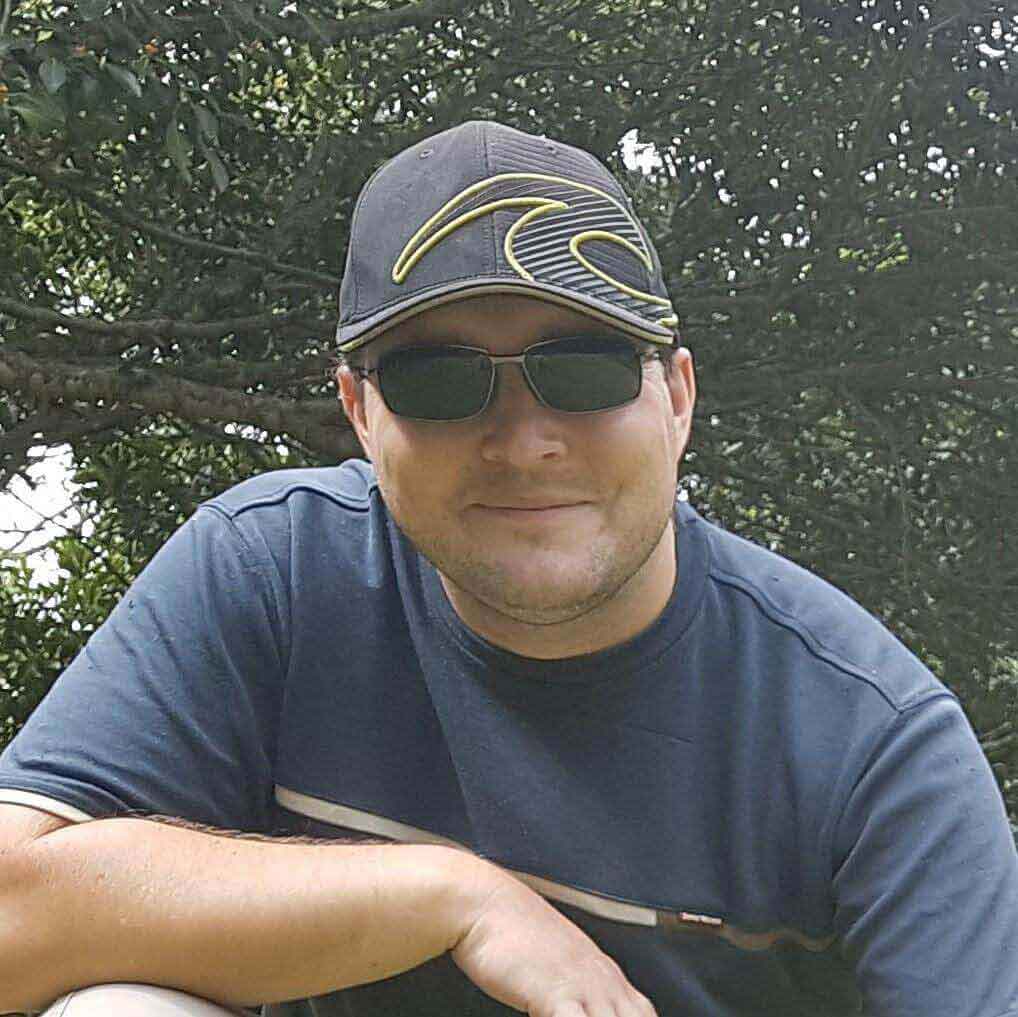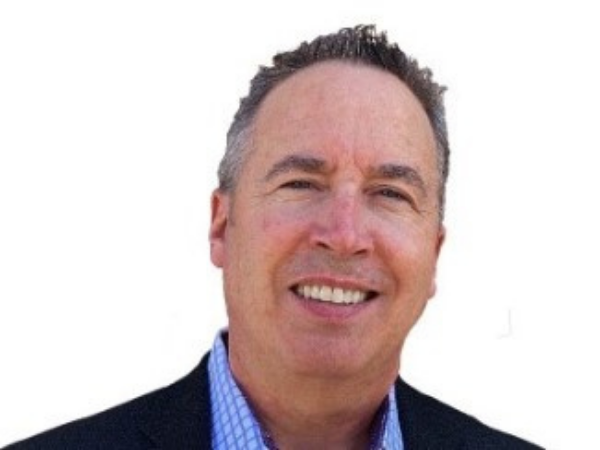 If buying an existing business doesn’t sound appealing or starting from scratch sounds a bit intimidating, then franchising might be the right choice for you. Franchising is when a franchisee (business buyer) will pay the initial fee to a franchisor (franchise seller). In return, the franchisee will gain the use of a trademark and of course the ongoing support from the franchisor. It has to have the appropriate use of the franchisor’s system on how to do the business esp when selling its product and services. There are pros and cons in franchising. Its strength is the ability to bring independent retailers together by using a single trademark of business. Franchising brings benefits such as brand awareness, effective advertising and uniformity. In this episode, we have Lance Graulich, CEO of ION Franchising, and he will discuss the know-about of business franchising.
If buying an existing business doesn’t sound appealing or starting from scratch sounds a bit intimidating, then franchising might be the right choice for you. Franchising is when a franchisee (business buyer) will pay the initial fee to a franchisor (franchise seller). In return, the franchisee will gain the use of a trademark and of course the ongoing support from the franchisor. It has to have the appropriate use of the franchisor’s system on how to do the business esp when selling its product and services. There are pros and cons in franchising. Its strength is the ability to bring independent retailers together by using a single trademark of business. Franchising brings benefits such as brand awareness, effective advertising and uniformity. In this episode, we have Lance Graulich, CEO of ION Franchising, and he will discuss the know-about of business franchising.
Josh: Let’s talk about all things franchising. You might have a cool idea, a booming business or want to get into one and I want you all to listen up. We’ve got Lance Graulich here and he is the expert in franchising around the world, the top 1%. So I’m going to ask you here, Lance, tell me, how do you know if you have an idea that’s franchisable?
Lance: Well, Josh, first of all, thank you for having me from around the world here in Las Vegas. So look, I always talk to people when it comes to franchising, what is your secret sauce? What do you have? What do you have that other people don’t? More importantly, what do your customers tell you that you have? Why are you good? And I always call it the secret sauce. Every business has it. Is it your people? You know, I was in a conversation the other day about Starbucks. Starbucks, the founder and CEO Howard Schultz will certainly tell you, it’s not about coffee, it’s about people. He’ll tell you his culture that he built is the secret sauce to why Starbucks is so successful. So that’s the short answer to start.
Josh: Cool. So everyone needs to find their secret sauce, I guess is what it comes down to. And that sounds on paper easy enough. But I understand that like, obviously, you have the likes of McDonald’s and these huge franchises. Is McDonald’s the biggest franchise at the moment?
Lance: Well, McDonald’s, Subway, those are two of the top right there in units. I mean, Subway has 15,000 just in the United States alone probably now.
Josh: Yeah, Subway recently has had a bit of an upset with their direction. Is that fair to say?
Lance: You hit on something very important because one of the biggest things that I talked to people about when they are looking into a franchise is you have to really like the leadership of the brand that you’re looking to get involved with. Because, you know, this is a long term relationship. A typical franchise agreement is 10 years. And it’s like dating, you know, you have that first conversation and you decide, is there going to be a second date?
So you talk about Subway. Yeah, there have been hiccups along the way. And that typically stems from leadership. As brands are growing, and in some cases, are not growing, all of a sudden, they have a period of time where they go negative. And, you know, the future is not looking so bright. Well, change of leadership means a change of strategy. And the new strategy doesn’t necessarily always take off as quickly as everybody hopes. And the franchisees aren’t in some cases, the ones that are high performing and doing very well typically are not going to be affected. It’s the franchisees that aren’t doing as well that, you know, could have the most to lose, I guess you could say at that point.
IT doesn’t have to be expensive. If you’re starting a business and need reliable IT support and services, fill out the form to learn more about $1 IT services.
Josh: That makes sense. I guess it’s just for lack of a better term, removing the deadwood or clipping the bush.
Lance: Trimming the bush
Josh: Trimming the bush, that’s right. So finding your secret sauce, like, I would say that I’ve got a team of unicorns that work for me, they’re fantastic, and they are the lifeblood of our company. I can say that when I started the business 13 years ago, and it was all me as a single one-man band in my parent’s garage as it would be that expanded out. And one of the things I noticed with expanding my business was, I had a process in the way that I did things. And when I brought staff on, they would have a process and the way that they did things all that would be looking to a process and amid the 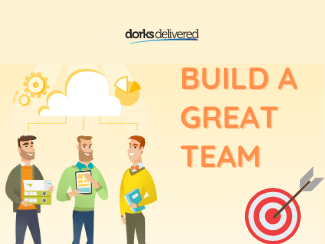 training and that upscaling was quite a long process to get there.
training and that upscaling was quite a long process to get there.
One of the things that I’ve seen with franchising is documentation is paramount and procedural documentation so that you can stir and repeat and have your empire run by 14-year olds is a big key to success. If you don’t have documentation, or if you’re running a business that is heavily reliant on the professional services industries, where you need upskilled, university degrees and so forth, is there any reason that that should create more friction or less friction towards setting up and selling a franchise?
Lance: You know, since technology has become a thing, I think it was 2000 or so that Google really came out strong, might have been about 20 years or so. But as technology has come about, the franchise world has really gotten even stronger in my opinion. Technology is a major advantage to being part of a franchise organisation.
You remember the old Yellow Pages, I mean, in the US? You know you wanted to if you wanted to find any kind of business, you would either call directory assistance, or you would, you know, open up the Yellow Pages and look for an ad on movers or whatever you’re doing, you’d find the Yellow Pages. Well, now everything’s on Google. So what do all the big companies do? It’s all about SEO, Search Engine Optimisation. And the biggest companies is spending their most money there or so, you know, all the franchise brands will show up in the top 10 searches. If you’re a lowly little mom and pop, good luck getting discovered when all the franchise brands are spending the money.
So look, I mean, the idea of a franchise is that anybody can jump into a franchise. What brands are typically looking for is they’re looking for smart people. They don’t care if they have any experience in the industry.
Let me give you a story. I got a guy. He has 19 franchise hair salons. He was a banker. He didn’t even have a retail establishment. He did nothing about retail and hiring employees at all. He was a banker. Had some money. And he’s a good friend of mine now, but I met him after he made this deal with another friend of mine who’s a franchise consultant like myself. And what we do as franchise consultants, is we listen to what people want in a brand. They don’t necessarily have any emotion attached to what the brand is because they don’t know what the brand is, but they know what lifestyle they want to have. Are they going to operate it? Are they going to be a semi-absentee owner and hire somebody? Are they looking to have a lifestyle where they don’t work nights, they don’t work weekends, etc.? What’s their investment level going to be?
If you need assistance with your automation, talk to a dork. Fill out the form below to book a free one-hour consultation.
So in this particular example, this gentleman has 19 franchised hair salons and guess what, he has no hair, he’s cutting the hair of a customer. And on top of that, he doesn’t even know how to cut hair. Nor is it a passion or interest of his. So he followed this particular system, an amazing franchised hair salon brand. He nets nets a million and a half US dollars a year from his hair salons and probably only works about five, six hours a week.
Josh: And he’s not spending that money on cutting hair obviously, because he doesn’t have any.
Lance: He’s saving his money on his haircuts. Absolutely.
Josh: That’s great. So I guess there’s two parts to it. So we got the franchise’s for go-getter investors really it’s not about what the product is. It’s about go-getter investors and making sensible financial decisions, as opposed to buying a pie shop because you really love pies. Somebody went to McDonald’s is looking at the numbers, not looking at how the burgers cook so to speak.
Lance: Yeah, I mean, look, anybody can start their own business, you don’t need to be in a franchise model. However, to do every single thing yourself, create a logo and trademark it and figure out what the prototype is. What size is just right for this particular business? Is it home-based? You know, how do we do it? How do we get the name out there? How much marketing dollar in marketing dollars do we need to spend to get any traction that gets us any attention. There are a million different pieces. Now besides myself owning quite a few franchises and being very successful. I’ve created some of my own brands and been very successful and sold several of them. So I am a consummate entrepreneur, but I’m also lucky. I was brought up in a very entrepreneurial type of family. My dad realised at a young age, my young age at the time, he said, you know, I’m pretty sure you’re unemployable like your grandfather’s, you better go figure out how to be an entrepreneur. You know, so you can start your own business. But if you can start with a franchise. You know, what I educate a lot of people on Josh is, you can basically get into a franchise as your first venture. And getting into any good franchise will teach you everything you need to know about business in general. And I see a lot of people do that, do really well. And then start to create their own concepts that they have a burning desire to bring to market.
Because look, if you have a burning desire to do something, the first step is to look at all the franchise brands and compare and contrast is there’s something out there that’s similar to what I already want to do. Do that competitive analysis. And if there truly is nothing and you still think it’s a great idea, then go for it.
Josh: There was a company just on comparing and contrasting. There’s a company called Pita Pit. I’m not sure if you’re familiar with Pita Pit.
Lance: Oh absolutely. I know the founder of Pita Pit.
IT doesn’t have to be expensive. If you’re starting a business and need reliable IT support and services, fill out the form to learn more about $1 IT services.
Josh: Oh cool. We did a lot of their IT support work throughout southeast Queensland and I had a look at Pita Pit versus Subway in Australia. And I personally liked Pita Pit more than Subway. Fresher ingredients, slightly more exotic ingredients. You had more options with the way it was cooked. It became instead of just a sandwich or a raffle stuffing, an experience. Let’s use that term.
Lance: More creative. Absolutely.
 Josh: Absolutely. And then all the Pita Pits locally around here we had like eight and we’re down to one now and it’s ages away. And I had to look at why is that? Now I don’t know if Subways done this everywhere. But Subway now started using similar ingredients, similar reps and they sort of looked at it, okay, this is what our competitors doing, wipe them out.
Josh: Absolutely. And then all the Pita Pits locally around here we had like eight and we’re down to one now and it’s ages away. And I had to look at why is that? Now I don’t know if Subways done this everywhere. But Subway now started using similar ingredients, similar reps and they sort of looked at it, okay, this is what our competitors doing, wipe them out.
The reason I’m saying that when it comes to franchising, is it good to come through with a slightly different idea. I’m not going to say Burger King and McDonald’s are the same company pretty much but they are, aren’t they? They really are. And you know who came first. But Burger King or Hungry Jack’s, as it is in Australia is still doing fine. They’re still doing very well. Is there any problem being, for lack of a better term again, a copycat type business in a franchise or do you have to completely reinvent the wheel? Or what would you say? Getting back to that secret sauce. What’s the secret sauce that the Hungry Jack’s or Burger King has that McDonald’s doesn’t or how do they differentiate from an investor’s standpoint? And from the end consumers?
Lance: It’s certainly a great, great question. You know, there was a book many years ago called Raving Fans. And I still think, you know, when I’m looking at franchise brands, I’m looking for who that customer base is, why our customers, use the example of Hungry Jack’s or Burger King, why are some customers coming to Burger King versus McDonald’s? Is it the product? Is it convenience?
Some brands are definitively a destination. Starbucks in the early days was absolutely destination, they made a conscious decision that they were now going to be a convenience, and they started putting in Drive Thru’s. So all of those things, you know, part of my expertise in franchising also happens to be the restaurant space. So with this question, I would want more of a point of differentiation. I don’t want to be another me-too look-alike type brand.
Now to your story on Pita Pit. I don’t know the history in Australia and what might have happened. But sometimes you have operators that maybe don’t perform for whatever reason, maybe there was a partnership breakup. And it was easier to not pursue Pita Pit, and there was nobody else interested in the market at the time. I could tell you there’s a brand right now a friend of mine owns in the US, where he has quite a few of these restaurants. And he’s incredibly successful by all standards with these restaurants that he operates. And I think he has eight right now, makes a lot of money. And he’s very happy. He’s got a great team. Interestingly, this brand has opened about 150 restaurants successfully, but they’ve closed 52 at this point. Those aren’t exactly good numbers, would you say? I mean, definitely not.
Do you need help with backup and recovery? Fill out the form to get in touch with a Dork.
Josh: One in three is not ideal, no.
Lance: But they’re still able to sell franchises at a good pace. You know the most difficult thing is getting to a new market, and really expanding in a new market and doing it effectively. So your customers can actually hear you through all the noise. And it’s what I call competitive noise. You know, Starbucks, when they opened in Las Vegas, where I am, Las Vegas isn’t that big of a place, about 2 million people and Starbucks literally open eight locations back to back to back to back in no time. Why? Because they wanted to build brand awareness quickly and get out and you know, have enough advertising dollars to share and spend for the entire market.
So there are different strategies. But the bottom line is, for me, it always comes back to you know, does your family like the food, because if you like the food, and you can be a customer, there’s a chance that this brand can do really well. If your entire family doesn’t like the food and nobody knows is going to be a customer. Probably a brand I’m going to try to stay away from. Fair to say?
Josh: Yeah, absolutely. One of the things on liking the foods that I found that just recently so only in the last 15 months or so Hungry Jack’s and Burger King, before McDonald’s released the Beyond Meat patties, the vegan options that then put them as a differentiator in the marketplace. Now I thought cool, okay. And that sort of made me think why hasn’t McDonald’s done this? And what is their connection to the meat production industry to have not done this? I thought cool, they’ve done this and then that instantly made it you if you’re ordering Uber Eats or something like that. If you’re ordering for a few people and there’s a vegetarian or a vegan or something like that instantly, you know exactly the place you’re going to be going because they’ve made that differentiator.
On that, when it comes down to things like Uber Eats, so I understand there’s a lot of different ways that franchises can be modelled now Uber Eats isn’t a franchise, but you still have solo operators that are going around getting a slice of the pie so to speak, whether or not an employee they’re contracted to a larger business. Would you call Uber Eats and Lyft and Uber a franchise in a sense, or what would you say differentiates their model to a franchise model?
Lance: They’re not a franchise at all. A franchise system one of the biggest keys so let’s talk about its use McDonald’s as an example. If you’re going to become a McDonald’s franchisee, McDonald’s corporate, which is the franchisor, ZOR. The ZOR versus the ZEE, the franchisor has to exercise quite a bit of control over their franchisees to have a successful franchise model. And the documents you know, franchising is regulated in the US regulated by the Federal Government, the Federal Trade Commission, and there are specific documents you have to create in order to be a franchise in the US. And for that matter anywhere in the world, there are different laws depending on the country you’re in, they might vary.
IT doesn’t have to be expensive. If you’re starting a business and need reliable IT support and services, fill out the form to learn more about $1 IT services.
But the bottom line is this, you have to exercise a reasonable amount of control. So if you are a franchisee of McDonald’s, you can’t decide to purchase things from different vendors. You can’t choose to have your employees wearing a different uniform, you certainly can’t choose to buy certain, you know, menu boards or lighting or tables and chairs, you have to use only approved vendors. Now, if you can consider franchising the most rigorous control type environment, you know, you have licensing, which can be kind of loosey-goosey, where, you know, you can license a certain product or recipe or name,  but they can’t control whether or not you serve hot dogs, for example, or change the uniforms.
but they can’t control whether or not you serve hot dogs, for example, or change the uniforms.
And some of the companies you’re talking about, you know, Uber Eats or what have you or Uber. I mean, they are major corporations that, you know, choose to run markets in a different fashion than a franchise would entirely. They’re not following the same rule book or operations manual necessarily, the control is on a corporate level, but it’s completely different from a legal setup.
Josh: Okay. If you’ve got an awesome idea that’s scalable, and you’re not looking to buy into, obviously a franchise, you’re looking to franchise at your business. How do you go about picking your market? So just recently, we’ve got Taco Bell and Carl’s Jr. to Australia. And people are loving it. And it’s going great. If you’ve got a product, how do you go about picking your market share? Where do you go about finding where you should be running a franchise? Because I’d imagine it’s not always going to be best just to run from home base.
Lance: No, you know, the first step is always where have you founded the company? All great franchises, at least start a franchise brand, starts with one location. A lot of people have seen the movie The founder with Ray, you know, Ray Kroc, and the story of McDonald’s, it’s pretty true. As far as I can tell, I’ve read all the various books on it as well. But it all starts with one location. In their case, they started in Southern California. Where did the first franchise take place? Well, Southern California, that’s where they were. And they started expanding throughout California.
So it’s all about proximity and franchising to start, although, with technology, you can be worldwide in no time, it purely depends on the brand and how much support is required. So I would say if you have a business in Australia, and as I mentioned in the pre-show, you know, I have actually talked to Australian brands quite recently that want to come to the United States. If you have a brand that’s already successful, even if it’s a single unit, by all means, you could be ready to start a franchise. And that starts with a free call with myself to explore those options. We get on a Zoom call like this and have that conversation.
IT is indispensable but it shouldn’t cost hundreds of dollars. Fill out the form to learn more about our budget-friendly on-demand IT solutions.
So anybody, it doesn’t, you know, some people say, Oh, you need five locations, ten locations. Look, if you have a brand that’s successful period, doesn’t matter how big you are, let’s have a conversation. If you’re looking to grow, that’s an option, because to grow on your own, the way Uber has chosen to do, they raise money in the public markets, they went public, they raised funds. And it’s not a question of better or worse, it’s a question of the desire of the owners.
I can tell you in the United States, there’s a lot to be said about private equity. Private equity is a huge topic. Private Equity groups control the money in the United States these days. And then the private equity groups love to gobble up franchise brands because they’re successful. That’s why I do what I do. And by the way, Joshua, keep in mind, there are so many franchises because so many people do think of restaurants as being the preeminent franchises. And while I represent almost 190 restaurant franchises, I represent about 400 non-restaurant franchises in every category.
Josh: If you are looking to dip your toes into business, as you said, this is an easy entry point jumping into a franchise is you’ve got a rulebook there, you’ve got sales guidelines, you’ve got a call to actions ready to go, you’ve got logos, you’ve got websites, you’ve got all this information that I know after being in business for 13 years, takes a long time to get sorted and get set right. If you wanted to dip your toe in and go okay, let’s see if buying a franchise is right for me and you’re interested in taking a little bit of money out of the mortgage or saving up a bit of coin, what’s the palatable entry price that you could expect to dip your toe in again. Okay, this is for me. Now let’s go the full hog and dive right in.
Lance: In US dollars, about $150,000 or less. I have quite a few franchises around the 100,000-dollar mark, home-based brands that are phenomenal. And in some cases, it might be $100,000. Get a little bit of little office somewhere, a lot of great brands. So that’s the answer. $100,00 and $150,000. And I have quite a few brands that are branching out. I mean, look, most US brands go to Canada first and then they look to eventually get to Europe, Asia, and eventually they’ll get to Australia of course, like McDonald’s for example. Taco Bell, as you mentioned, just got there, because they’re pretty much full of the US at this point.
Josh: In the land down under it takes us a while to catch up, I think.
Lance: Running for the border.
Josh: If you’re buying into a franchise, let’s say buying into a taco bell or a home-based business, you say you should have a backing of about 150,000 or be able to gain a position the bank is going to give you that that kind of money. Is that fair?
Lance: Yeah. I mean, look, there are opportunities throughout the United States, the Small Business Administration, which is, of course, backed by the government, it’s essentially a government-backed loan will lend to everybody on franchises. I mean, if they’re a good franchise, they’ll lend typically 75%, 80% of the money that you need with a minimal credit score, it’s not even a fantastic credit score. It’s in the US, it’s just a 680 credit score.
So Australia is going to have similar programs to simulate business and the Australian economy. You know, the challenge just becomes, you know, what are those brands that if somebody wanted to bring it to Australia, what are they? Because Taco Bell is not an inexpensive franchise, Taco Bell is not sizable investment, so is Carl’s Jr, as you mentioned. Again, as I mentioned earlier, because of technology today, it’s quite a few, very inexpensive high performing franchise brands that are easily duplicatable or replicable in Australia. And those brands, if they’re not in Australia, now they’re coming.
IT doesn’t have to be expensive. If you’re starting a business and need reliable IT support and services, fill out the form to learn more about $1 IT services.
Josh: That’s a pretty easy entry point really. Like if you had to look at the return on investment of buying a house with a 20% loan or 80% Elvia, and then you had to look at buying a franchise where you’re getting the same amount of money sort of borrowed from the bank or whatnot. And it’s sitting at 30 grand or something like that US obviously, as we’re saying, but 30 grand, what would you say you see,  and obviously, this is such a difficult question to ask, but what are the returns? So a house, you might get 5%, 7% every year if you’re doing well, 2% in the worst areas, 0.5 in the middle of the cities.
and obviously, this is such a difficult question to ask, but what are the returns? So a house, you might get 5%, 7% every year if you’re doing well, 2% in the worst areas, 0.5 in the middle of the cities.
Lance: This is one of my favourite questions because I’ve actually gotten in arguments with accountants and attorneys over this because sometimes they miss this. When you buy a franchise, you know, just like you’re describing a house. So you make a big investment like a house. Obviously in the US, you certainly have to write-offs, mortgage interest, you get to deduct, there are various things that advantages to owning a house in the first place. And then you also have the equity that you build over time in owning a house. Well, a business is no different.
First of all, you have a tremendous amount of write-offs when you own a business, and a lot of people forget that. Secondly, you do have the obvious equity that you have, when you own a business. When you sell a business in the US, especially a franchise, there’s a secondary market for franchises, there are brokers set up all throughout the US, if franchisees want to sell, you know, you could sell for four times your cash flow. This is a substantial upside. So if you got into a franchise that only cost you $100,000, and you create a substantial cash flow, which you can, I’ll give you a perfect example, I have a franchise that cost $62,000 US home-based. There’s a gentleman that just sold his franchise that he purchased it for $62,000, seven and a half years later, he just sold it for $1.7 million US, he also made a nice income, about $500,000 to $800,000 a year while he operated.
Josh: So that’s a perfect segue into what I was just about to ask. How do you make sure or how do you make sure you’re buying a job or some franchise, you’re buying a job, some of you buying an investment, some of you buying a spot to work with a known brand where you’re doing something you love, so you might be a plumber, and you go, I’m going to operate underneath this brand because I know that this is a going to bring leads to the door, I’m not going to have to do any of the other business stuffing around or the footer, I’m just going to be able to do the voodoo that I do.
Do you want to learn more about technology for business? Fill out the form below to get a callback.
In the franchise world, is there an easy way to differentiate between buying that investment, which is probably going to have a lower return, but you’re forking out the money but you’re doing nothing? You’re just sitting there set and forget the like, like stocks and shares or something like that. Versus buying a job, which is still a fine enough thing to do, because you’re buying that brand recognition, you’re getting your foot in the door very easily to get to do exactly what you want to do with a known brand with leads coming through. Is there a way to differentiate between those if you’re going through some franchise broker or someone was to contact you? And I said, Look, I want to buy an investment. I don’t want to buy a job. How do I work that up?
Lance: That’s why people use me, I’m free. My advice is free. I get paid by the brands. So there’s a lot to unpack in what you said. So let’s take it in two parts. There’s a validation stage. So once I introduce you to various brands, and Joshua says, Lance, I’m interested in this brand and this brand, set me up with a phone call. I introduce you, you have your first call, your second call and you go to especially these days, it might be a virtual type discovery day where you meet the team, tour their corporate office, even virtually if that’s the case usually has been done face to face, they’ve changed things up a little bit these days for expediency.
But there’s a validation process, as you get to the end. Where if they really love you, and you love them and you want to do a deal, they say, well wait for a second, Joshua, we would like you, here’s a list of all of our franchisees, I would like you to call at least five of them at random, whoever you want to call. And I want you to ask him any question you want to ask him. Things like, you know, would you do it again? Are you happy? Do you make money? Do you have the appropriate support, marketing, etc., etc? And you could either see yourself in those people or you don’t, and decide to move forward. So in the due diligence process, I asked you or my candidates questions like, again, what kind of lifestyle are you interested in having? Are you going to be the owner-operator?
Because let me tell you if you want to be a semi-absentee owner, and absentee owner, I have brands like that. I have brands where you can be a complete absentee owner, and not do anything, it’s a strategic move by the franchisor. They have technology and systems in place where you can do that successfully.
Now, there are quite a few of prospective franchisees in the US as an expression called the pipe dream that doesn’t necessarily exist. And they think they’re going to get wealthy from owning one little restaurant. That’s not how it goes. Sometimes you have the individual franchisees that jump into one restaurant, and they might be successful, but it’s a grind, and it’s a JOB. It’s not the dream that they wanted. So what I tell people is, if you only have money to get into one restaurant, you really want to do the restaurant business, go right ahead. But keep in mind, you got to get ready to get a second one, and a third one. Wealth is easily built in the restaurant business when you have multiples. You start to get five restaurants, you can net $80,000 a location, $400,000 US from five restaurants, that’s a substantial income. It’s hard to do that when you’re working for someone else. And now you get to write your own schedule. In my case, I work seven days a week in my restaurants, because it was working for myself. You know, what’s the old expression, you rather work 80 hours a week for yourself than 40 hours a week for someone else.
IT doesn’t have to be expensive. If you’re starting a business and need reliable IT support and services, fill out the form to learn more about $1 IT services.
Josh: Yep, it becomes something you’re interested in doing, especially if you’re buying into something that you believe in and you’re passionate about. So I understand you’ve got an assessment tool at ionfranchising.com that people can jump on to. Tell us a bit more about that tool.
 Lance: Yeah. So, at my website, ionfranchising.com, there is a free assessment. If you scroll down a little bit, and it’s quite scientific, it’ll take you 10, 15 minutes to do. And it’ll determine not only your current mindset based on your past skills, and your risk tolerance, comfort zone, and it kind of whips it all together and determines compatibility with what brands you’re most compatible with is the best way to say it.
Lance: Yeah. So, at my website, ionfranchising.com, there is a free assessment. If you scroll down a little bit, and it’s quite scientific, it’ll take you 10, 15 minutes to do. And it’ll determine not only your current mindset based on your past skills, and your risk tolerance, comfort zone, and it kind of whips it all together and determines compatibility with what brands you’re most compatible with is the best way to say it.
Then it’ll give you a detailed report. It’ll give me a detailed report, and I’ll be able to guide you better. I’m still going to ask about 30, 40 other questions to roll it all together because that’s the way I’m going to help you best. So it’s a great tool. It’s free. It’s right on my website. Now one of the big pieces I tell people a lot, Joshua, is my goal is to get people really clear, to give them the clarity to understand what their goals are. As much as I’m a franchise consultant, I’m really a franchise strategist. I help people develop their life plan and how they can most effectively be an entrepreneur. And my favourite expression as a result of that is clarity is currency. So clarity is currency is my general theme. Getting people clear so I can get to you know finding them a brand that is absolutely perfect for them.
Josh: It sounds like there’s nothing to lose only things to gain. More clarity for them, more clarity for everyone and definitely give me more clarity on how franchises work and the direction that things can go. And if anyone out there is keen we’re going to be jumping in and organising to have another podcast on how to set yourself up and price your first franchise. Otherwise, did you have any other questions, Lance, or things that you’d like to go through before we head off?
Lance: No, Tony Robbins once said model success and that is what franchising is. So that’s my final word of the day and you have been amazing and I look forward to round two.
Josh: I’ve loved doing it Lance. And if anyone out there has any feedback and comments, jump across the iTunes, give us some love. Leave us some feedback and stay good.
[module-379]


